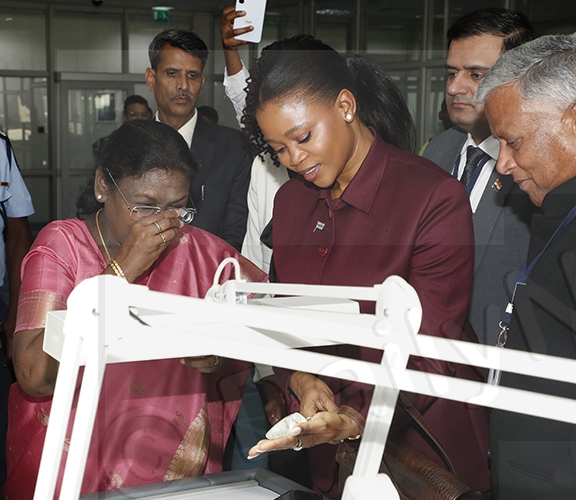BERA holds public hearing on BPC tariff hike application
14 Aug 2022
Botswana Energy Regulatory Authority (BERA) held a public hearing to consolidate views from stakeholders on Botswana Power Corporation’s (BPC) application for a five per cent electricity tariff increase for the year 2023/24.
In an interview Thursday, BERA chief executive officer, Ms Rose Seretse said the public hearing formed part of the review process for the tariff application before the final decision by the regulatory authority.
Ms Seretse said the public hearing presented the corporation an opportunity to inform the nation why it was necessary to file a tariff increase application, and also to afford consumers a fair chance to respond.
Imposing a tariff remained a sensitive subject as it had a financial impact on the livelihoods of every member of the public, hence the need for a balanced approach, said Ms Seretse. She said submissions from the power corporation, Botswana Chambers of Mines, Consumer Watchdog, and other invited participants were fundamental in crafting a precise response to the request in application. In her submission, Ms Seretse asked whether the corporation saw prospective growth given the improved performance of Morupule B.
She noted that the corporation recorded sales revenue of P4, 336 billion compared to P4, 021 billion the previous year; a growth of eight per cent which was attributable to an increase in energy consumption.
Also, Ms Seretse asked why the rooftop solar uptake was low, citing that it ought to be high given the benefits of selling back to the corporation.
Ms Seretse said concerning issues surrounding the environment and climate change, countries were compelled to increase the use of renewable energy sources.
Therefore, she requested to be enlightened on what the corporation thought should be done to balance the adoption of solar energy against achieving affordable tariffs.
Moreover, she appreciated the proposals made by both Botswana Chambers of Mines and Business Botswana which suggested that tariff increases should be kept at a minimum.
Meanwhile, BPC chief executive officer, Mr David Kgoboko said the annual tariff reviews were necessary to generate the required revenues to sustain the corporation.
Mr Kgoboko said the corporation was not immune to the rising inflation, and sharp increases in their input costs of generating, transmitting, and distributing electricity.
“These inputs include among others fuel be it coal, diesel, petrol; power infrastructure; equipment and materials,” he said. He said the benefits of their improved performance particularly in the generation and export of power would only be realised in the foreseeable future, citing that they started from a negative cash flow base.
Furthermore, Mr Kgoboko said government subsidy meant to cushion BPC against the impact of non-reflective tariffs had reduced over the years in line with the plan to migrate to a cost-reflective tariff.
He said their operations including power stations and the network were maintenance intensive, therefore they needed to undertake preventative maintenance for them to provide uninterrupted power supply to customers.
He maintained that the five per cent tariff increase proposal they were presenting for the next financial year was part of the journey towards migration to a cost-reflective tariff that would allow the corporation to sustain its operations.
Mr Richard Harriman of Consumer Watchdog advocated for no tariff increases for the lower income band.
Khoemacau Copper Mining, Mr Boikobo Paya submitted that the tariff increment was necessary. He however, said the corporation should be mindful of the timing.
Mr Paya said copper nickel prices had plunged, with inflation heavily affecting their costs of inputs such as diesel, petrol, and steel. ENDS
Source : BOPA
Author : Marvin Motlhabane
Location : GABORONE
Event : INTERVIEW
Date : 14 Aug 2022





